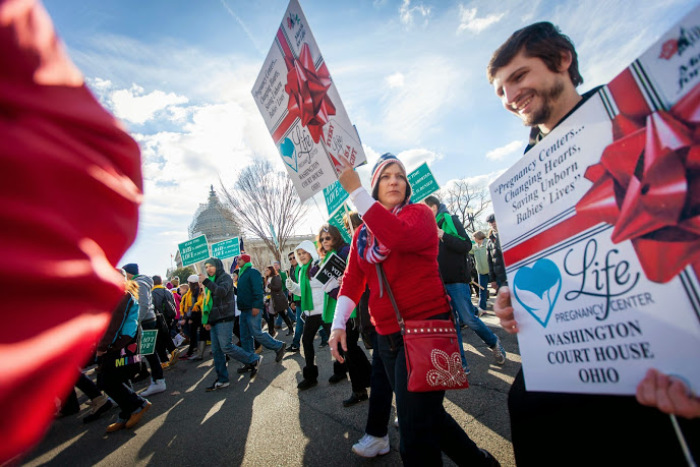Forcing March for Life to Pay for Abortifacients Makes 'No Sense Whatsoever,' Judge Tells Obama Admin

March for Life, the organizers of the largest pro-life event in the U.S., won a historic victory Monday when a federal judge stopped the Obama administration from forcing the group to pay for drugs that could cause an abortion.
The lawsuit, March for Life v. Burwell, was filed in July of 2014 through the Alliance Defending Freedom after the healthcare mandate forced non-religious employers to provide coverage for contraception, including drugs that could induce an abortion, and planned to financially penalize any who didn't.
Jeanne Monaghan Mancini, the president of March for Life, told The Christian Post that it felt "incredible" to resist the mandate and that "justice was served" when their small organization prevailed.
While many para-church organizations are suing the Obama administration over the mandate, the March for Life case tests whether a secular organization should be exempt from the mandate when it holds moral objections.
Judge Richard J. Leon of the United States District Court for the District of Columbia ruled that objections to contraception are "not confined to religiously affiliated employers."
"If the purpose of the religious employer exemption is, as [the government's Health and Human Services department] states, to respect the anti-abortifacient tenets of an employment relationship, then it makes no rational sense-indeed, no sense whatsoever to deny March for Life that same respect," he wrote in his decision.
Part of the reason Judge Leon ruled in favor of March for Life is because the organization was specifically created to fight for the rights of the unborn based on moral, scientific and philosophical grounds.
"Our founding documents, our articles of incorporation state that we believe that life begins at conception. We are created to protect and defend life from the moment of conception," Mancini explained.
In 2012 it was made clear that churches would be exempt from the Obamacare contraception mandate for religious reasons. However, non-church organizations that had a moral exemption were still included and forced to provide abortifacients to employees through their healthcare plan. HHS required that employers had to provide health plans that covered all FDA-approved forms of birth control or face steep fines — $100 per worker per day, or $36,500 per worker a year.
In 2014 the U.S. Supreme Court ruled that the Obama administration must provide an exemption to closely-held corporations when its owners have a religious objection.
March for Life, like many others, looked for ways to get around the plan, like switching health insurers or sending employees to state-run exchanges. But both options would still result in the organization being forced to pay for drugs that it opposed. The organization that employs only six was reluctant to file a lawsuit, but felt they had no other choice.
"Our budget is under $900,000. We're a little guy. We didn't have the luxury of a lot of extra time or energy to take on a lawsuit, but at the same time, we felt it was the right thing to do," said Mancini.
Fortunately, the court ruled in their favor.
"We are delighted that the court has ruled in our favor on this crucially important case. The government should not be allowed to force organizations like the March for Life to have health insurance with drugs and devices that can cause an abortion," said Mancini in a statement. "As an American today I am grateful for the balance of powers. I am also deeply grateful for Alliance Defending Freedom and Matt Bowman working on our behalf this past year. "
Mancini said that the ruling has affected other pro-life organizations, who reached out to them and were energized by the legal victory. ADF Senior Legal Counsel Matt Bowman, who worked closely alongside March for Life during the case, said the decision could help establish a legal precedent in the future and help create a culture of life.
"This decision is persuasive and influential to protect the conscience of all pro-life organizations," he told The Christian Post. "It's very rewarding to see the court recognize that the government is acting irrationally when it forces a pro-life group to cover anti-life products in its health insurance."
The U.S. government may appeal the case, according to legal experts.
The fight against the Obamacare contraception mandate will continue this fall as seven different non-profit organizations have filed lawsuits and are asking to appear before the Supreme Court. In one case, Little Sisters of the Poor v. Burwell, a group of Catholic nuns is asking the court to respect their rights to not be a party in any way to abortion or abortifacients.
A Denver judge ruled against the nuns. However, the Little Sisters of the Poor were granted a reprieve from the heavy non-compliance fines until the case is heard by the Supreme Court.





























